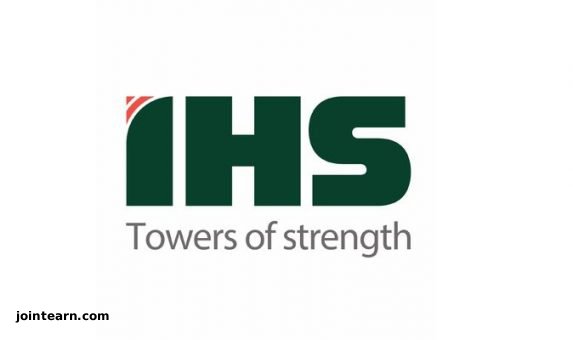
IHS Nigeria has announced a reduction of nearly 50 million litres of diesel consumption across its operations, while installing hybrid energy solutions at over 6,000 power sites and connecting almost 4,000 sites to the national grid. The initiatives are part of the company’s Project Green, a flagship program aimed at reducing the group’s carbon footprint and advancing sustainable telecommunications infrastructure.
The announcement was made during the Sustainability Table Discourse Series (STS) themed: “Sustainability in Action: Scaling the Impact of a Thriving Future to Achieve the SDGs.” Industry leaders, policymakers, and private sector stakeholders gathered to discuss collaboration, innovation, and circular economy approaches in achieving Nigeria’s sustainability goals.
Delivering the keynote on behalf of Kazeem Oladepo, Senior Vice President and COO of IHS Nigeria, Gimba Mohammed, Director of Government and External Relations, emphasized that sustainability is central to the company’s operations.
“Sustainability is at the heart of who we are. It is embedded in our corporate values and reflected in every aspect of our operations, from powering sites sustainably to nurturing communities and promoting ethical practices,” he said.
Project Green and Renewable Energy Initiatives
Project Green, Gimba explained, is a key step in IHS Nigeria’s carbon reduction roadmap.
“Across our markets, we have reduced diesel consumption by nearly 50 million litres. In Nigeria, we have fitted over 6,000 sites with hybrid energy solutions and connected almost 4,000 sites to the grid,” he said.
The company’s clean energy efforts also include planting 4,000 trees across eight states, installing solar streetlights in underserved communities, and launching the Climate Action Superheroes (CASH) program in partnership with Green Hope Africa, educating students as climate ambassadors.
IHS Nigeria has also prioritized e-waste management, partnering with the Electronic Producers Responsibility Organisation of Nigeria (EPRON). The program has trained 214 participants and established 69 waste collection centers across six states and the FCT, promoting sustainable disposal practices.
Scaling Impact Through Partnerships
During the panel, Ghaith Al Hasan, Director of Engineering and Design, highlighted the importance of partnerships in scaling renewable energy solutions.
“Our experience has shown that the right partnerships, technologies, and maintenance structures are essential for sustainability. Today, IHS operates renewable energy systems across more than 10,000 sites in Nigeria,” he said.
Adding a regulatory perspective, Grace Majekodunmi, Principal Environmental Scientist at NESREA, discussed circular economy practices and the Extended Producer Responsibility framework, emphasizing manufacturers’ role in minimizing waste and adopting cleaner technologies.
Representatives from agriculture and investment sectors also highlighted the importance of technology, resilient infrastructure, and early engagement with investors in ensuring sustainable climate projects.
Commitment to Sustainable Growth
In his closing remarks, Gimba reaffirmed IHS Nigeria’s commitment to sustainable growth.
“At IHS Nigeria, we are deliberate about scaling impact through sustainable infrastructure. Our mission is to ensure that our assets not only connect people digitally but also empower them environmentally, economically, and socially,” he concluded.
Through Project Green, IHS Nigeria demonstrates how innovation, renewable energy adoption, and community engagement can work together to reduce carbon emissions and promote sustainable development in Nigeria’s telecommunications sector.


Leave a Reply